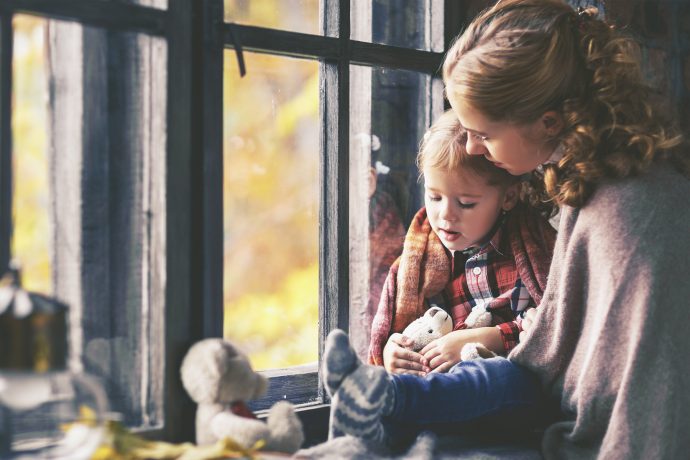Dear parents, pastors, and leaders,
Perhaps we have become all too familiar with headline news that has the power to stun and shut down an entire city as well as beckon the attention of a whole nation. I suppose, in times like these, some of us feel less equipped for our role as caregivers—mostly because the hard truth is that a horrible, terrible, unfair, devastating, forever-life-altering thing happened, and there are no words to change or lighten that fact. None.
So what do we do or say in response to the questions our children are asking? In his book Talking about Death, Earl Grollman says, “When something goes wrong like death, sometimes we want to pretend it didn’t.” Unfortunately, when pretending it didn’t happen becomes our default, it furthers separates us from living in the pain of loss and helping us gain perspective—whatever that may be.
As conversations with our children arise, it is good to acknowledge some important truths:
*It is normal for death to seem very scary to us. None of us have “practiced” death.
*Death is very sad.
*I don’t know all the answers to your questions, but I want to listen and wonder with you.
*Sometimes really bad things happen. Crying is one of the natural ways our bodies respond when we feel afraid or confused or overwhelmed.
What does the Bible say? Wouldn’t it be great if we could say, “By the authority of God’s Word, here’s how and why this horrible thing happened, and now let’s deal with it so we can get on with life!” But when we turn to Scripture in this way, it is easy to pull Scripture out of context in order to try to explain God’s part in the midst of tragedy. I implore you to handle God’s Word with care. The sad truth is that sin destroys at any and all cost. The good news is that God is still redeeming all that God created.
Consider helping children (and other adults) remember:
*Jesus came that he might overcome darkness in this world.
*God is still peace, love, and the other fruit by which the Spirit is manifested in us (Galatians 5:22–23).
*Pray together, and don’t be afraid to tell God that you do not understand.
*God is not intimidated by our questions or our fear.
Keep in mind that death and the news of death can hijack thoughts and imaginations. For example, the news of death may increase worry or anxiety in otherwise well-adjusted children. It is good to create space for kids to ask questions. Their questions may not come up right away. In fact, they may trickle from their thoughts over days, weeks, or even months. When questions are six months removed from difficult circumstances, they may seem random. However, this simply reflects the way some children process.
Tragedies that involve a crowd tend to saturate the headlines, which may create heightened sensitivity in your household. Listen and watch for these signs. Choose carefully the stories to which your children are exposed. Guard your words so that you do not impose your own personal fears on children. They may not be thinking what you are thinking.
Continue to help children feel and be safe to the best of your ability. Children may show unusual behaviors like wanting to snuggle more, sleep next to you, or have you in their room while they attempt to fall asleep. It is important to validate fear during difficult times—because fear is real. Children may not have language to help them identify their feelings, so instead, their feelings are manifested through behavior.
Resist the temptation to hurry through tragic days. Don’t be afraid to disrupt routine in order to make space for grief and growth.
With our youngest learners, conversations may start with questions like, “What is dead?” Kids could be invited to draw, write, sing, or pray their thoughts, all of which can provide an appropriate outlet for expression.
Children grieve too. Their grief may look and sound different from adult grief, but it is grief nonetheless. It may even be generated over a loss that seems far removed from their own world.
What if this happens to us? Actually, this question represents a common fear among children. As concrete, literal learners, it is easy for children to draw conclusions that imagine themselves or other loved ones in a similar narrative. “My loved one died from being sick, so I (or my mommy, my daddy, etc.) will also die from being sick.” If this one comes up, it really takes time and reassurance to get past this idea. Resist making promises that you do not have the power to control, like: “I am never going to die and leave you.” Instead, hear and validate their fears while helping them turn their attention to the patterns of the past. “Remember that time you had a tummy bug, you were so sick? You did not die.” Talking about accidents, illness, and tragedy is hard. We must be careful not to fixate on every loss that surrounds us. In the same way, we cannot hide loss.
Consider avoiding phrases like:
*Don’t worry about it.
*Don’t be silly—that happened miles from here.
*God needed some more angels in heaven.
*It was their time to go.
*Or really any other flippant or avoidance statements.
In these days, hold children close. Tell them of your deep love and the love of a Creator. Resist the temptation to hurry through tragic days. Don’t be afraid to disrupt routine in order to make space for grief and growth. And thank God that, in the midst of the most troubling and difficult days, God is.






0 Comments